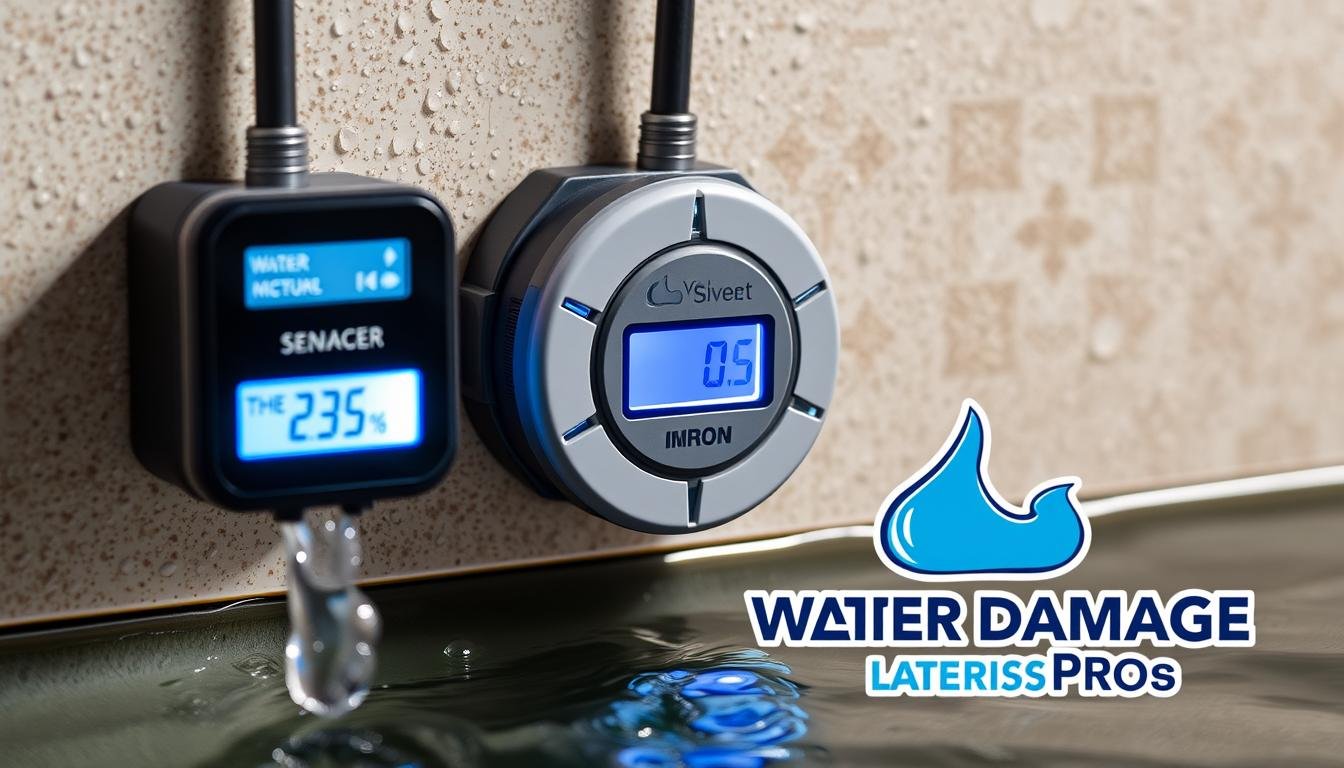How to Install Flood Sensors and Detect Water Damage Early
Water damage can cost homeowners thousands of dollars. The average cost of water damage claims in the United States is $10,000 per incident1. Smart flood sensors can help detect leaks and flooding early, preventing costly damage and giving you peace of mind. Smart flood sensors, also known as water leak detectors, are Wi-Fi-enabled devices. They monitor for leaks in your home. These sensors can communicate with your smart home system, sending you alerts when they detect water. By catching leaks early, you can minimize the risk of severe water damage and take quick action to address the problem before it escalates. Integrating smart flood sensors into your home can be a straightforward process. But, it’s important to consider compatibility, placement, and maintenance to ensure optimal performance1. In this article, we’ll guide you through the steps to install flood sensors and harness their power to protect your property from water damage. Key Takeaways Smart flood sensors can communicate remotely and provide early detection alerts, enhancing your ability to respond to leaks and flooding1. Consider compatibility with your home’s existing smart home system, such as KNX, before purchasing flood sensors1. Strategic placement of flood sensors in key areas like basements, bathrooms, and near appliances can help you identify and address leaks quickly1. Regular maintenance, including checking battery levels and testing sensor functionality, is crucial for ensuring your flood sensors remain reliable1. Professional installation by KNX-certified technicians can help ensure a high-quality, properly functioning flood detection system1. Understanding the Importance of Flood Sensors Water damage can sneak up on homeowners, causing big problems without warning. Strategically placing water leak detectors in your home can really help. It can prevent water damage and basement flooding2. Why Water Leaks Can Be Devastating Kitchens, bathrooms, and areas around appliances like washing machines and dishwashers are prone to water leaks2. If not caught, leaks can damage floors, ceilings, and foundations. They can also cause electrical problems2. Water damage can also lead to toxic black mold growth. This is a serious health risk2. Basements are especially at risk of water damage. This can come from inside the house or outside floods2. iPropertyManagement.com says 98% of all homes with basements will experience water damage2. The Benefits of Early Detection Installing moisture sensors and water intrusion detectors can alert homeowners to problems early. This lets them fix issues before they get worse23. Early action can save a lot of money and prevent big headaches3. Proactive steps to prevent floods can also save a lot of stress. The average flood claim is $52,000, according to the National Flood Insurance Program3. A good water leak detection and prevention system is a smart choice for homeowners. install flood sensors water damage Choosing the Right Flood Sensor Protecting your home from water damage is crucial. The right flood sensors can make a big difference. They detect water and alert you quickly, helping to prevent damage4. These sensors send instant alerts when they find water. This can save you money on repairs in flood-prone areas4. Plus, they’re easy to install because they’re battery-powered and wireless4. When picking a flood sensor, consider its size and temperature range. For example, the ADT Flood Sensor is small and works well in different temperatures4. They use a 2.4 GHz RF frequency to talk to your security system, ensuring reliable monitoring5. Strategic Placement of Flood Sensors Where you put your flood sensors is key to preventing water damage. Install them in places like basements and near water-using appliances6. This helps protect your home and saves on repair costs4. Flood sensors are also great for vacation or rental homes. They can alert you and monitoring services to water issues, even when you’re not there4. This keeps your property safe and your investment secure5. By picking the right flood sensors and placing them wisely, you can protect your home from water damage465. Conclusion Putting water leak detectors in the right places is just as important as picking the right ones7. Focus on areas like under sinks, near big appliances, and around toilets. Also, check the basement and HVAC systems. This boosts your home’s defense against water damage7. Water leak detectors are a small price to pay for big savings. They can prevent expensive repairs and keep your home’s value up. Plus, they give you peace of mind89. Early detection of leaks, thanks to tech like the Water Puck by Triton Security, can stop big damage8. Real-time alerts let you act fast, turning off water and reducing damage8. This smart move can save you thousands of dollars in repairs and insurance claims8. Water risks are a big problem for homeowners. Smart flood detection and temperature/humidity alarms in your smart systems offer great convenience and peace of mind7. These technologies are great for any property, big or small. They help you avoid water damage and protect your assets97. FAQ What are water leak detectors and how do they work? Water leak detectors, also known as smart leak sensors, are Wi-Fi-enabled devices. They watch for leaks in your home. When they find a leak, they send you a text or notification, so you can fix it before it floods or causes damage. Where should I install water leak detectors in my home? You should put leak detectors under sinks, near big appliances like washing machines and dishwashers. Also, around toilets, in the basement, and near HVAC systems. These spots are common leak sources that can cause a lot of damage if not caught. What are the benefits of using water leak detectors? Leak detectors help you find leaks fast, so you can stop them before they cause more damage. They also work with smart home systems, giving you more control. Catching leaks early is key to avoiding the big problems that water damage can bring. What are the key features to look for in a water leak detector? Look for a leak detector with a long battery life and one that fits your smart home system. It should also be able to spot small …
Continue reading “How to Install Flood Sensors and Detect Water Damage Early”


